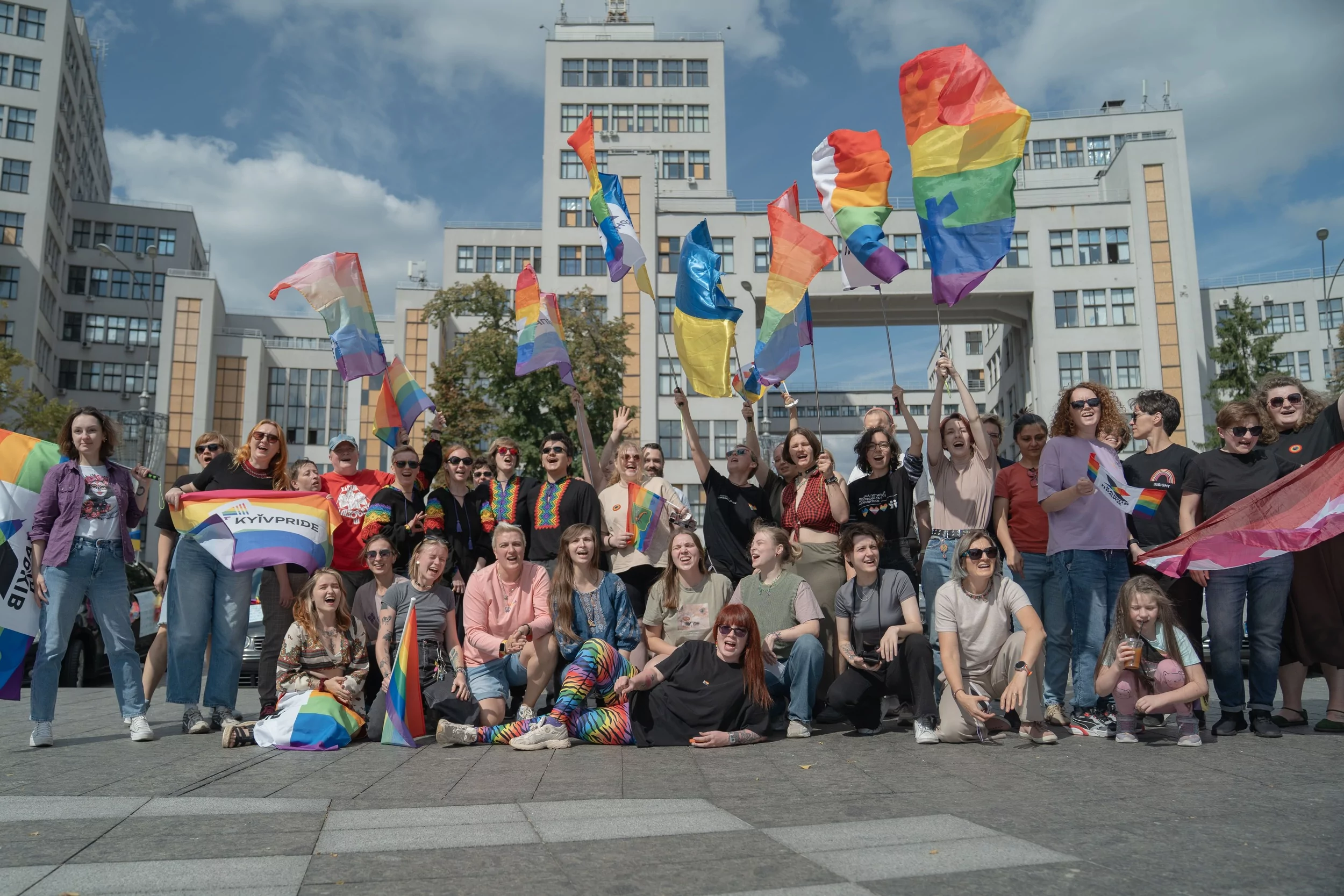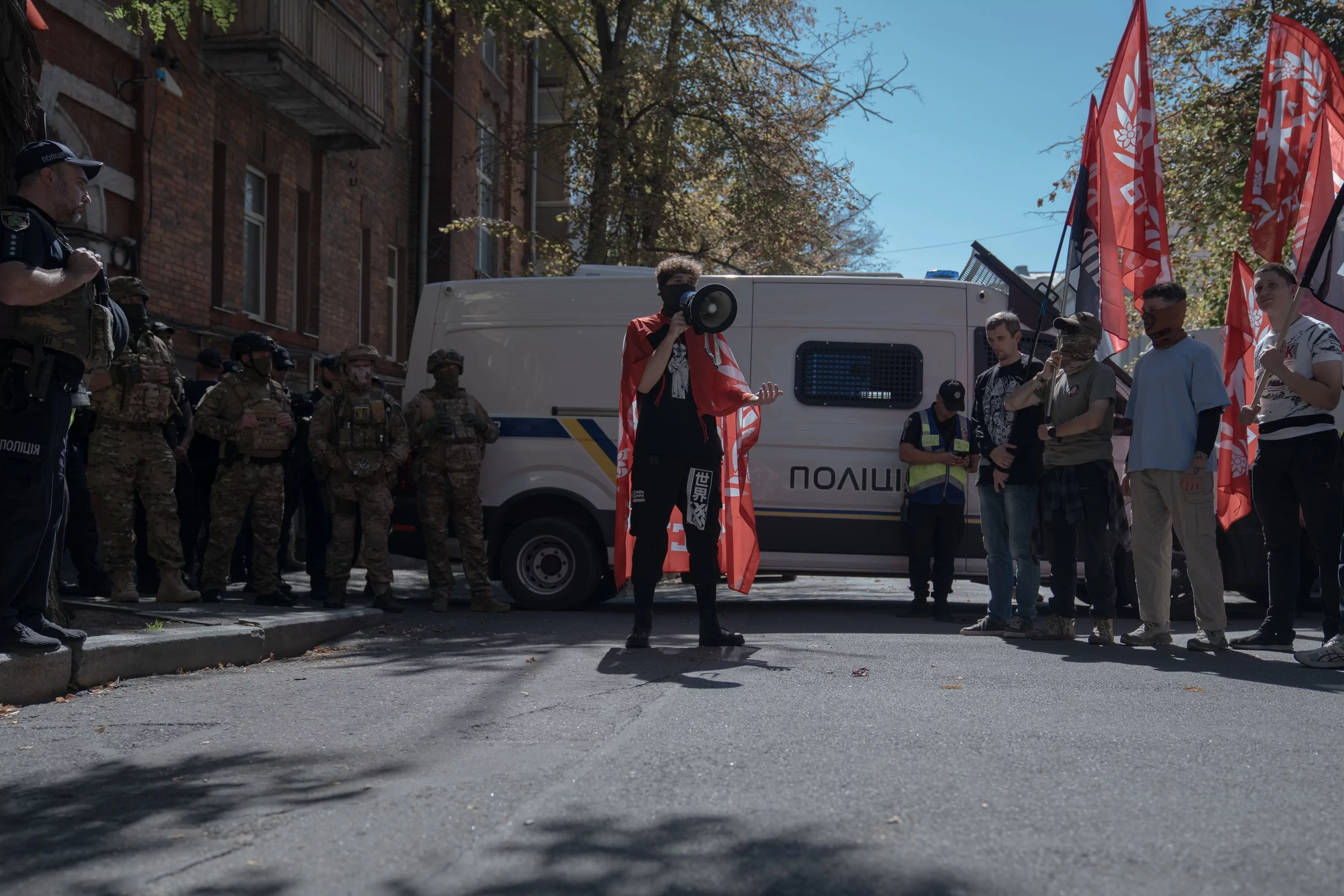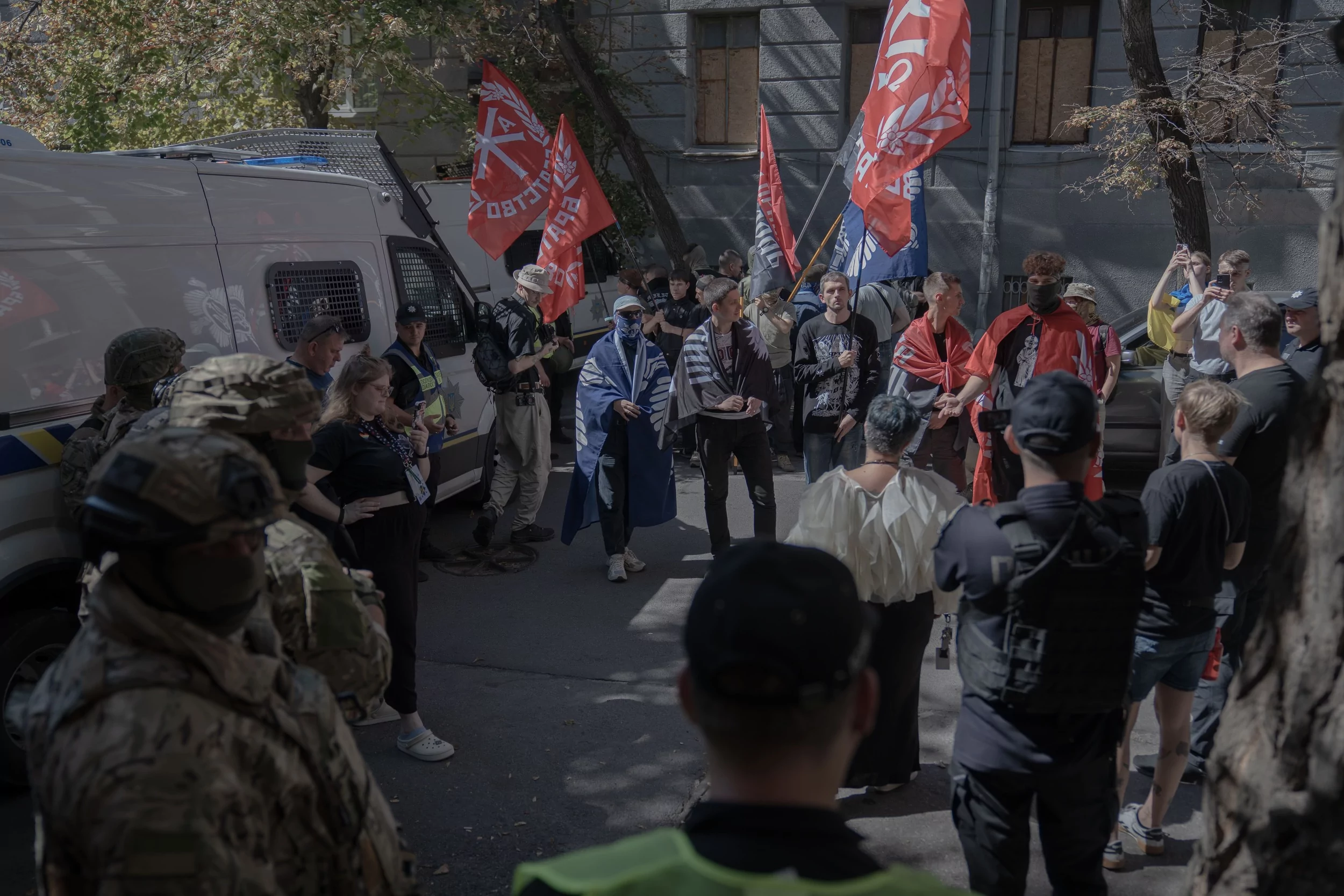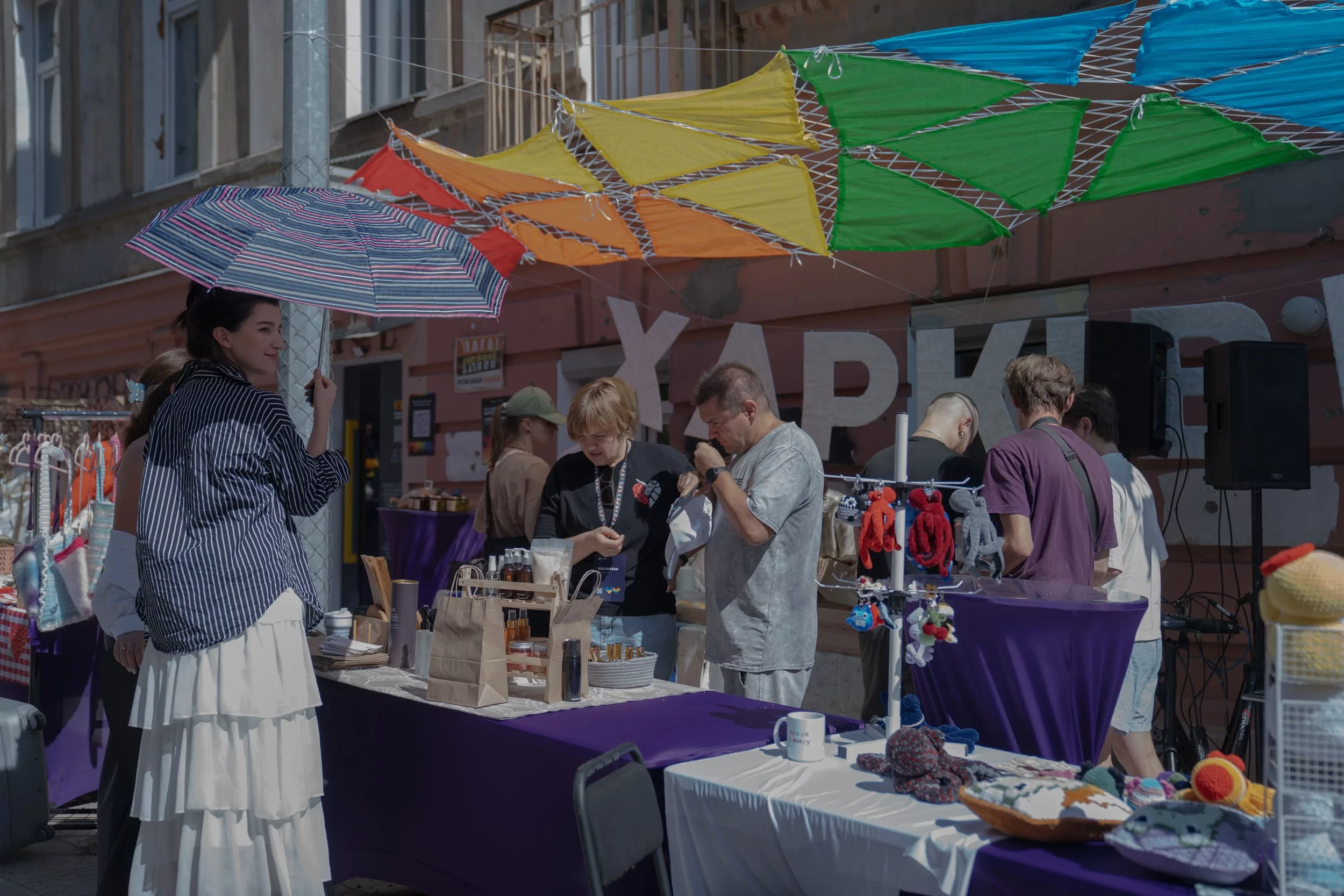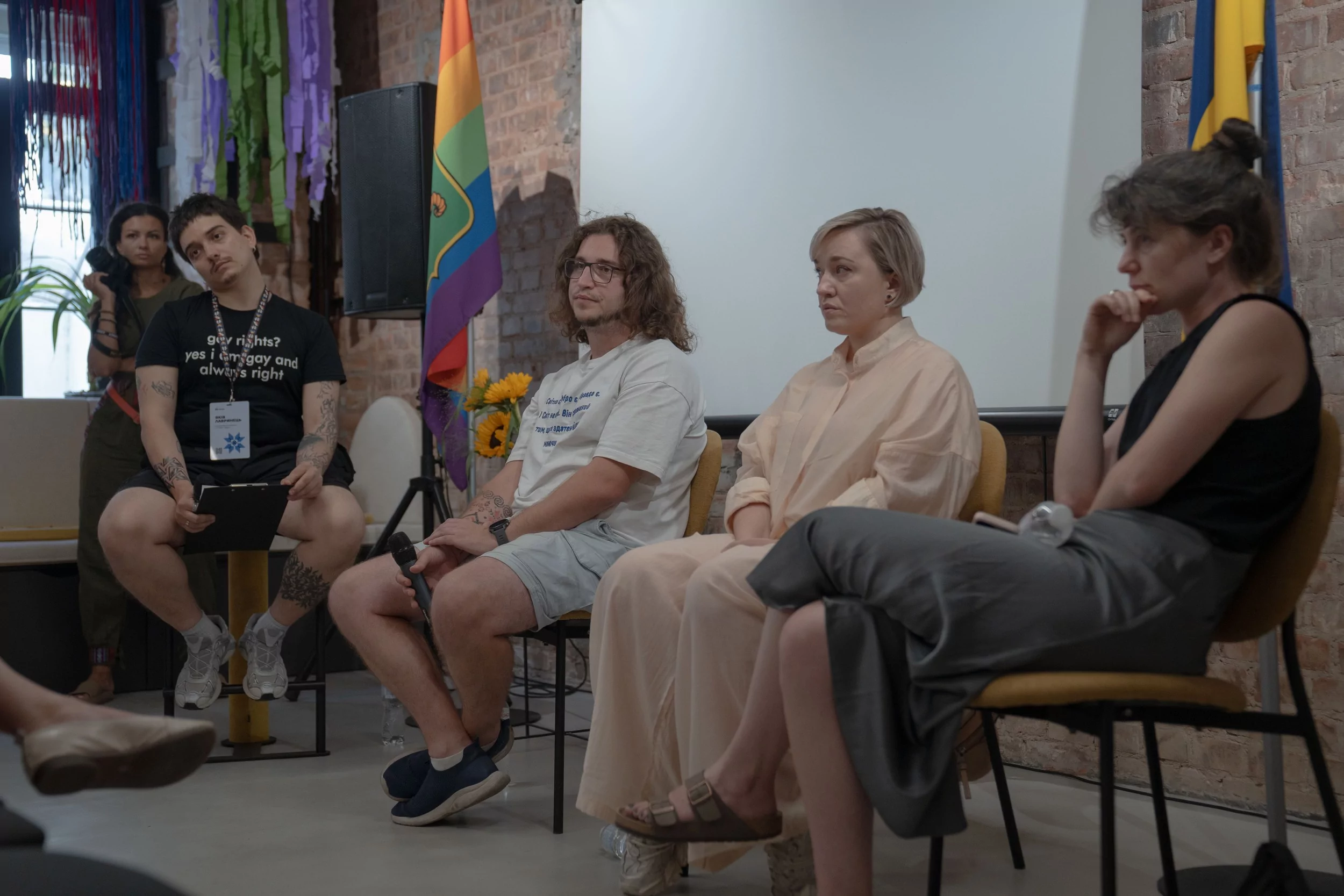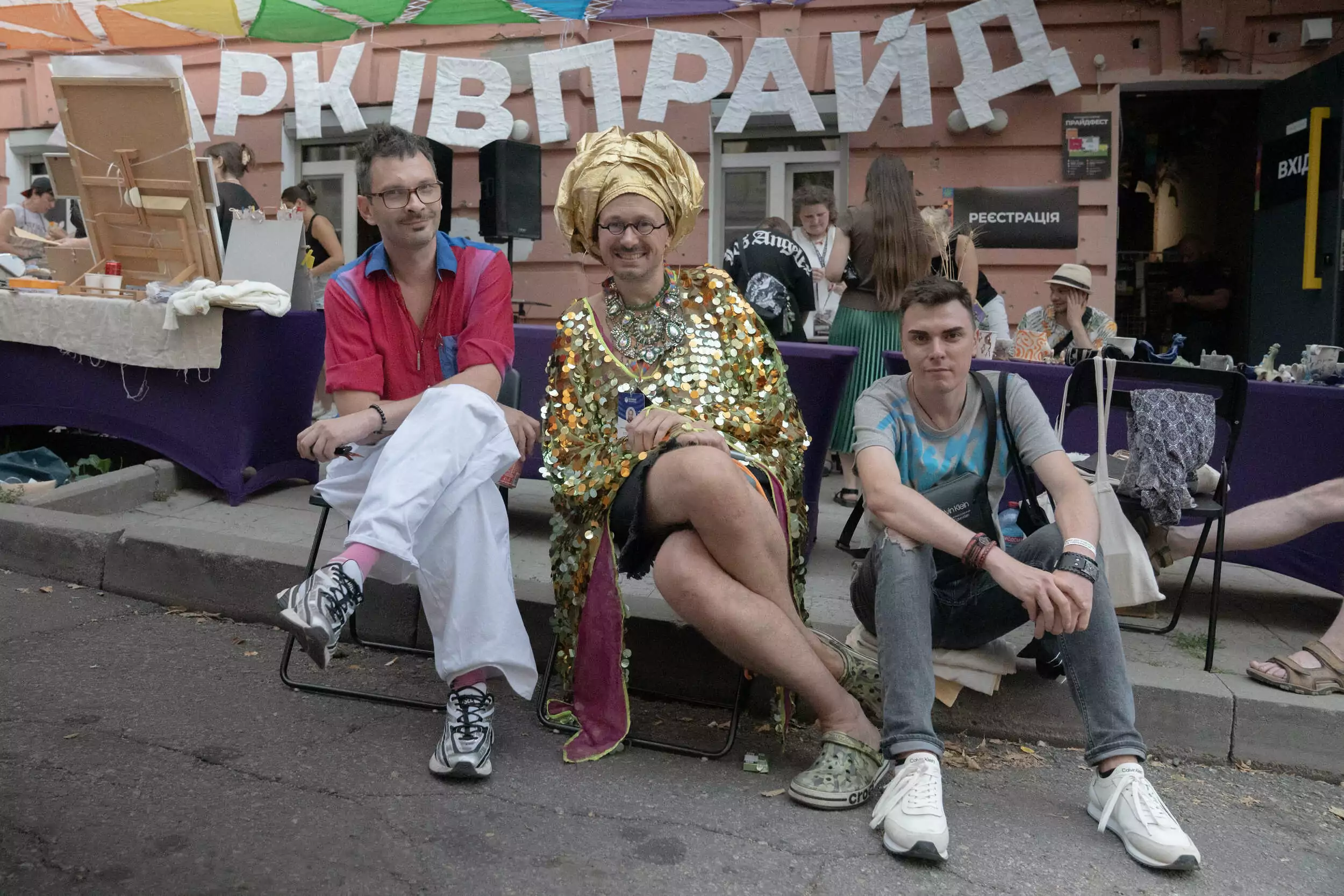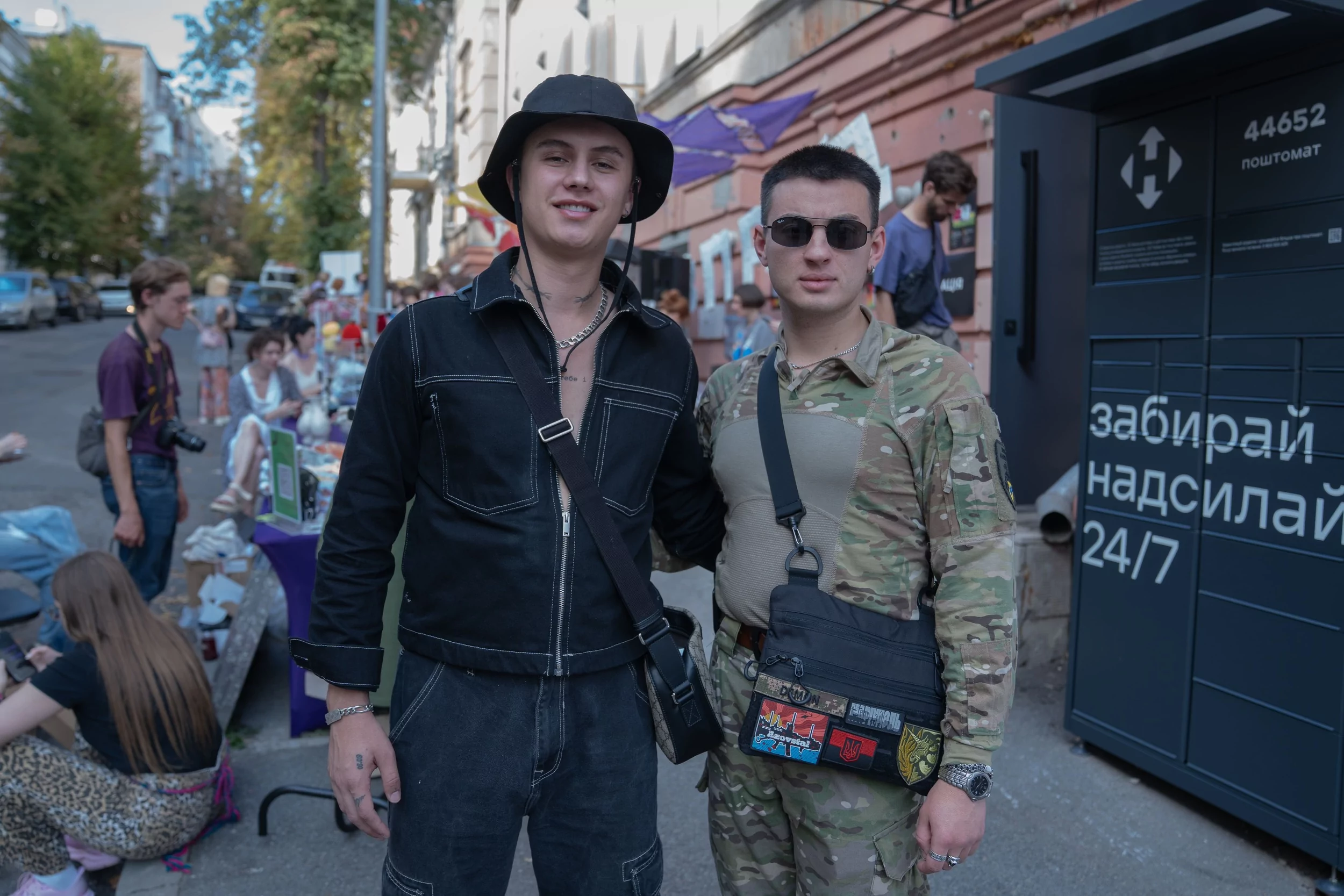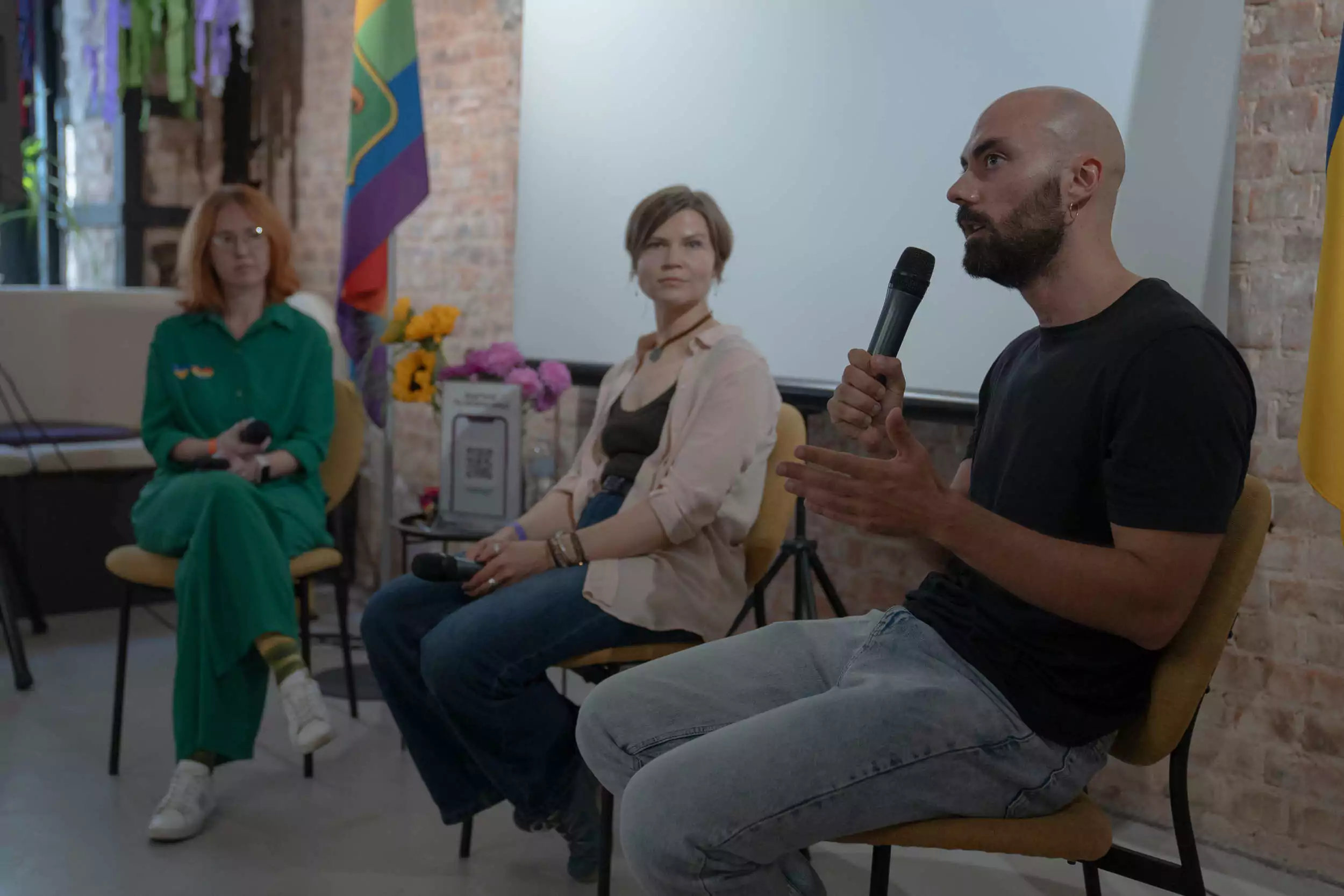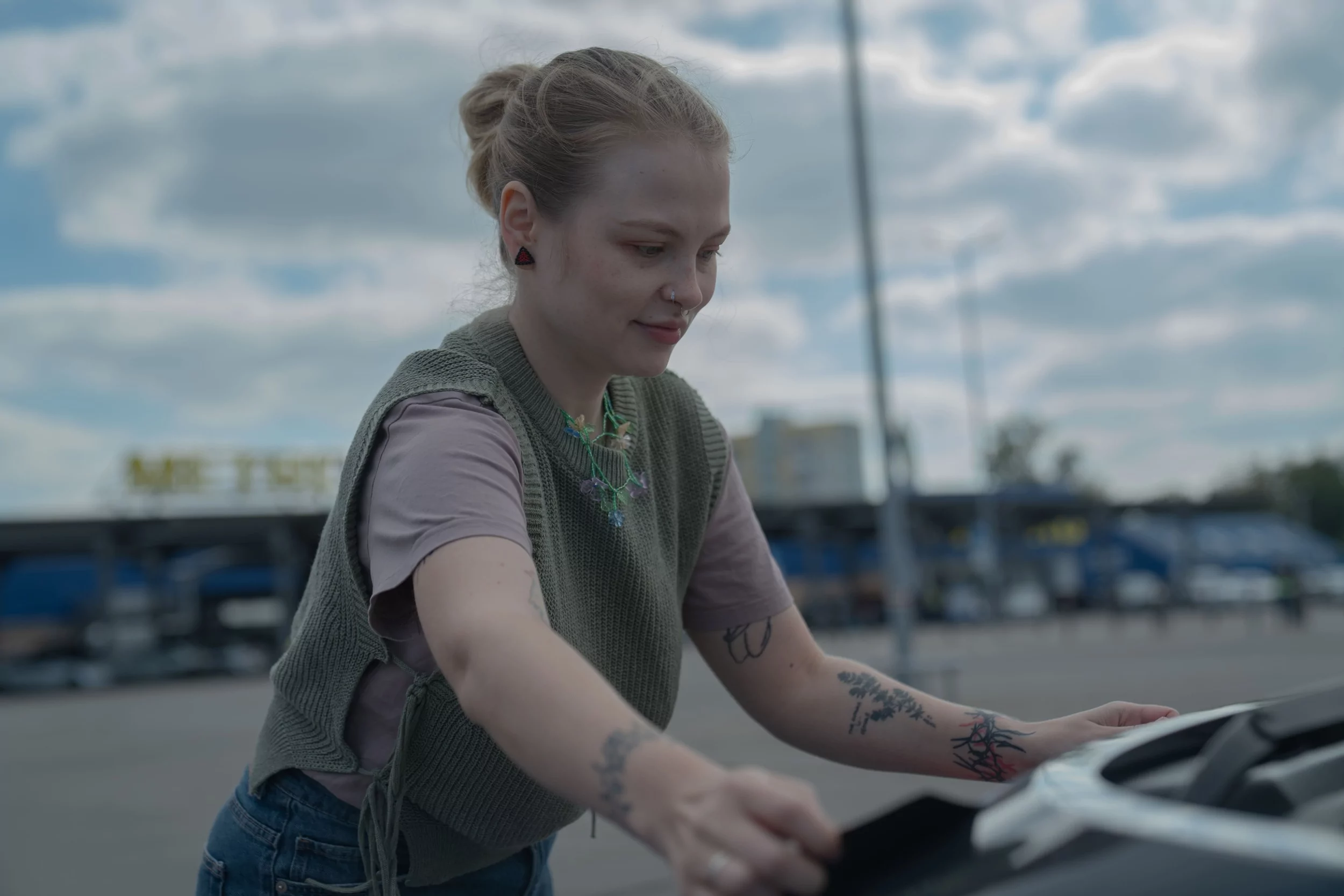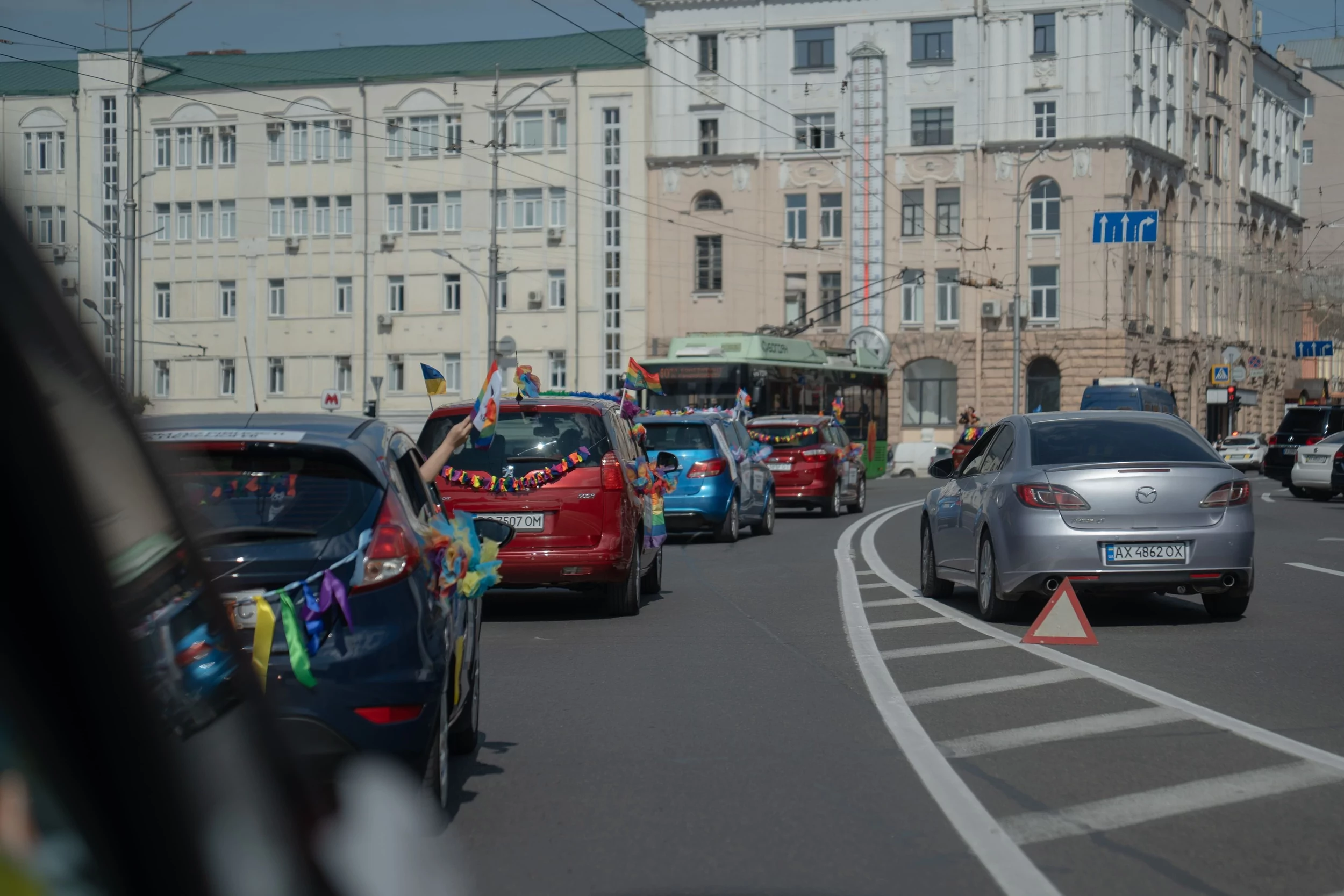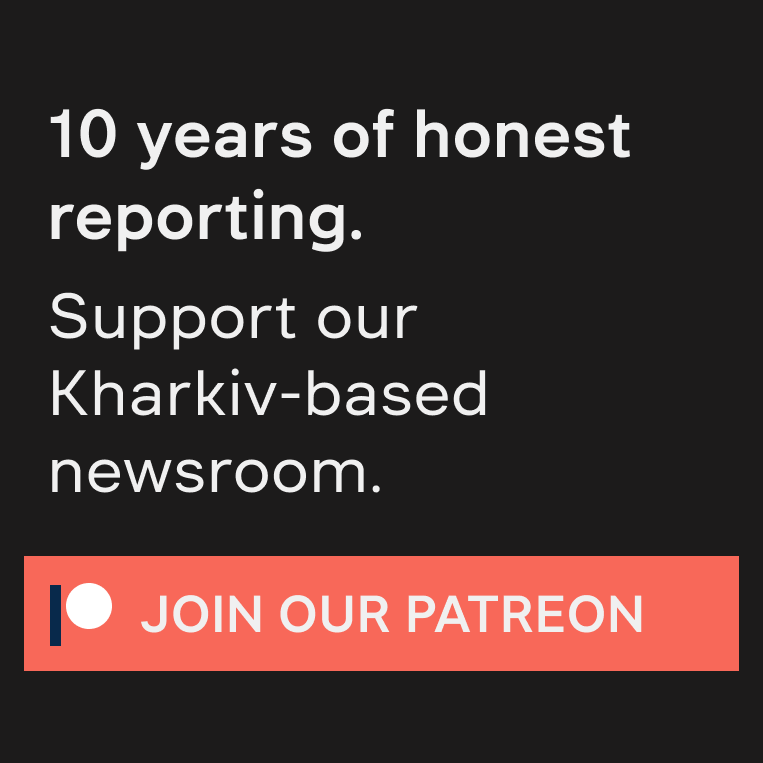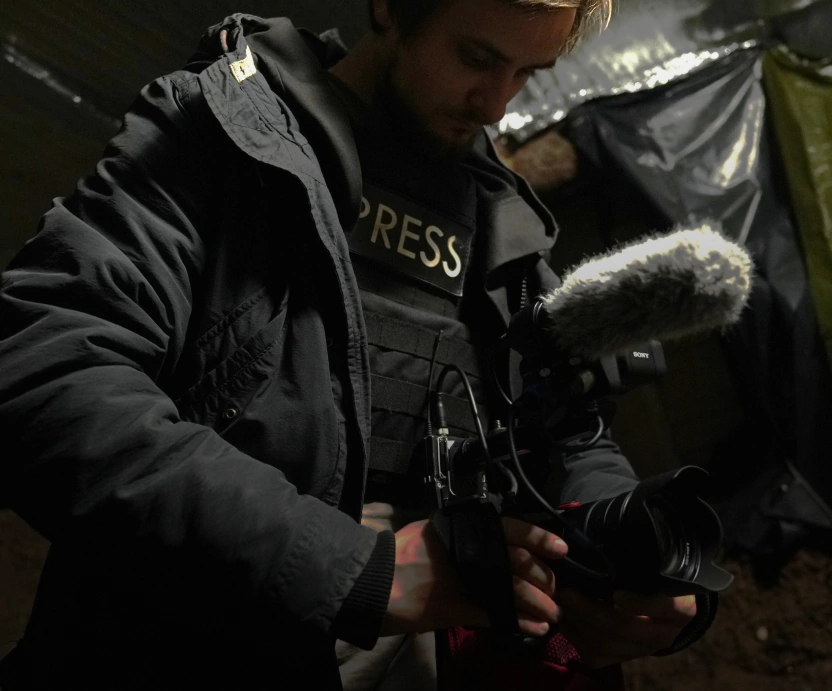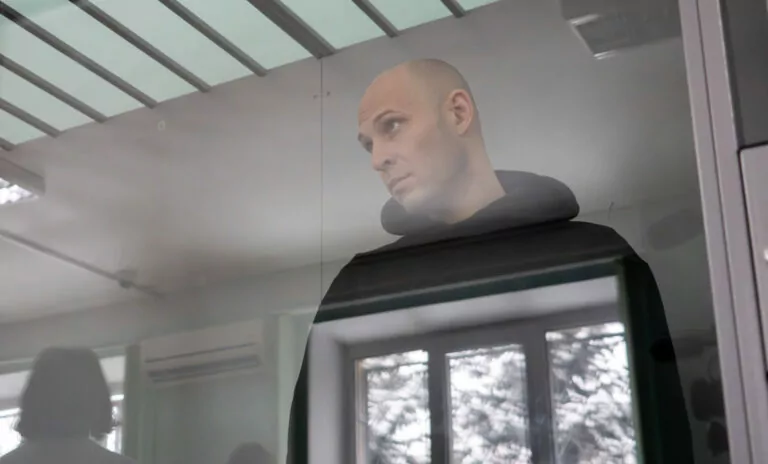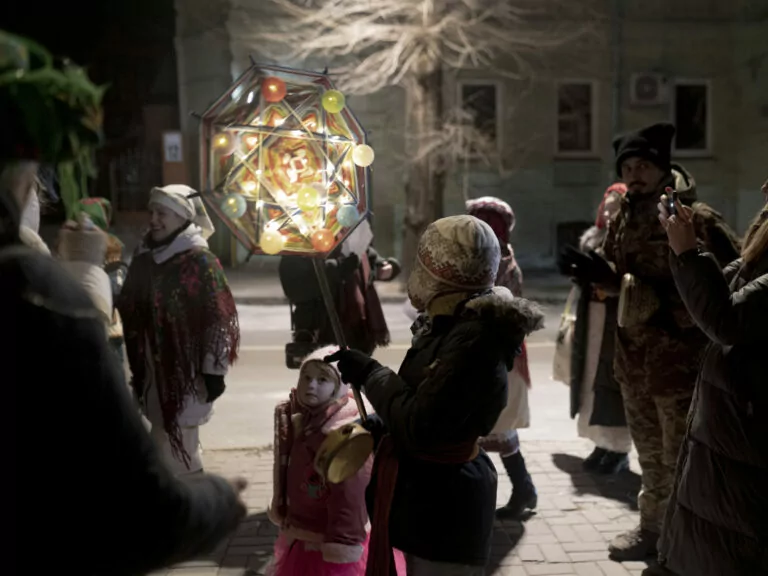A parking lot near one of Kharkiv malls buzzes with activity. This Ukrainian city sits just 30 kilometers (19 miles) from the Russian border. More than a dozen cars decorated with pride symbols line up for AutoPride 2025, part of this year’s KharkivPride LGBTQ+ festival.
Police officers watch the gathering, some nervously discussing final security details with organizers. Participants, brightly dressed, sing along to Ukrainian songs from car stereos. Kharkiv’s queer community knows today is their day.
KharkivPride began in 2019 as an Equality March and has been held annually since. In 2022, during Russia’s full-scale invasion of Ukraine, the march was moved to the metro station, to be safe from Moscow’s air raids. Since 2024, it has taken the form of a car rally.
The seventh KharkivPride is a human rights festival addressing discrimination and challenges Ukraine’s LGBTQ+ community is facing. It began with PrideFest in late August and was completed with AutoPride on September 6. Gwara Media’s journalist joined most of the activities within PrideFest.
Sin
The festival opened on August 30 at PrideHub, a safe space for the LGBTQ+ community, women, and allies. That weekend was eventful for the city: in other places, activists commemorated the fallen and missing defenders of Ukraine and the Literary Fair was organized in the city’s underground exhibition center. The police patrolled the city center intensively from early morning.
It was noisy near the PrideHub—about 30 men from right-wing, Christian groups, with covered faces and flags of their organizations, clashed with police while trying to get to the festival. Police blocked the road to the hub with buses on both sides.
One unnamed protester claimed they came unarmed just to “read a Ukraine’s nationalist prayer” at the venue, but when police refused access, a scuffle broke out. Fully equipped special police formed a “shield” that festival-goers had to pass through.
“Do you understand what ideas they are promoting with this event?” a man from the group surrounding the police officer asks.
“What ideas?” the police officer replies, his face blank. The conversation between them has been going on for a long time, but has not progressed one bit.
“Look: they are destroying individuality, renouncing religion. They want us to renounce our race and our nation, too. They say, ‘Become like us.’ That’s pure communism, you understand?”
The policeman doesn’t respond—he doesn’t seem to be a fan of ideological discussions. Beads of sweat drip from his forehead in the heat.
The group of men keeps demanding that one of the KharkivPride’s organizers come out to talk to them.
Brother “Mukha”, a young man with bruised fists, wrapped in the red flag, is one of the most active participants in the counter-rally. He outlines three demands: to cancel all KharkivPride events, to direct the organization’s funds to the military, and to publicly report on the funds spent.
“Why are you hiding your face?” I ask Brother “Mukha”.
“Honestly?” he replies. “I really like it. I thought about going without a balaclava, but then I saw how I looked wearing it and thought, ‘Damn, I have to wear it.’”
His answer sounds rehearsed. It’s hard to believe that a guy would put up with extra clothing on his body in such heat just to look cool.
Brother “Mukha” represents the “Brotherhood” church and the battalion of the same name within Ukraine’s main intelligence agency (HUR). He says this battalion is divided into combat and rear units. “Mukha” belongs to the latter.
He equates KharkivPride with an organization that promotes drug addiction, murder, rape, or theft.
“Are you equating LGBT people with rapists?” I clarify.
“I’m saying that this is a sin and rape is a sin. As for judging what is worse and what is better—as far as I remember, that’s God’s business.”
A few minutes later, Anna Sharyhina, co-organizer of KharkivPride, comes out from the hub’s building. The men perk up. They had just been joking about her weight.
“What you’re saying about (homosexual—ed.) propaganda doesn’t quite work, because surely your heterosexual orientation… Are you heterosexual, by the way?” Anna asks, and Brother “Mukha” nods, affirmative. “If it works that way, then you should become homosexual now, but—”
“Why do you say I have to become homosexual?” he interrupts.
“Because you’re talking to me, and I’m a homosexual woman. If it’s propaganda—”
“Are you a homosexual woman?” he interrupts again. “So you like men?”
“A homosexual woman is someone who likes women. I’m a lesbian.”
“Why not men? Go back to men,” the crowd behind him laughs. “Let me find you a handsome man!”
One of the participants assures that they weren’t against gays and lesbians.
“We’re against organizers who promote an ideology that is hostile to Ukraine, when we’re facing a demographic crisis and a divided nation. Only nationalism, tradition, faith in God, and faith in victory can help us in this existential war (with Russia)”.
Festival
This year, for the first time, some of the PrideFest events were held outdoors: the fair welcomes guests with music and a relaxed atmosphere they try to maintain after right-wing activists left.
Among the participants, there are occasional talks about what had just transpired.
“It’s a shame that people chose resistance within the country,” says Anna Sharyhina.
She has a busy day, so I catch her for a quick talk between panel discussions. “It’s always scary when there are attackers. Another thing is that I’m afraid that people won’t come (because of right-wingers and police).”
There are fewer people during the day because of the heat, but in the evening the fair fills up with guests. The organizers are counting on at least last year’s number—400 participants over two days.
Anna calls the increased police patrols around KharkivPride “overprotection,” but notes that police is working “at a European level.”
“Nevertheless, coming to PrideFest is activism,” says Anna Sharyhina, meaning being openly present as queer people at the festival. Before the full-scale war began, there were frequent cases of participants in pride marches being harassed and beaten up by people from right-wing organizations.
KharkivPride is held in the fall as part of Ukraine-wide agreements that allow people to attend pride events in different cities—KyivPride in June during Pride Month, OdesaPride in August, says co-organizer Yakiv Lavrynenko.
He got involved in LGBTQ+ activism in 2016, and, since then, has been to almost every Ukrainian march. He has worked with KharkivPride since 2019
“I was at BerlinPride in 2019—it’s commercialized, in the aftermath the streets are dirty like after soccer matches. In Ukraine, it’s still about human rights,” Yakiv says. “Abroad, organizers are surprised we don’t shout ‘Happy Pride!’ Instead, we carry posters about LGBTQ+ military and slogans asking for support of Ukraine (in Russia’s war).”
As people get under the shade of umbrellas and take up beanbag chairs, community-friendly businesses set up their products along the street.
Natalia sells marigold petal jam from her field in the frontline city of Derhachi, calling it an exclusive. Her jam is a popular gift even abroad — she recalls orders from Canada. She mostly works alone while her husband serves in the army.
This year’s program also includes social initiatives related to the wartime. Yura and Emil from volunteer organization Shcheznyk teach guests how to weave camouflage nets. Crafting nets, they say, is making military gear with civilians who want to help but can’t donate or serve. It requires only free time.
The PrideHub’s cool semi-basement has reinforced windows and armored doors — the necessary protection against Russian airstrikes and intruders. In the main hall, people learn how to make collages.
Ariana cuts magazine pages along with her friend, who she didn’t see for a long time. She’s attended Pride festivals since 2021 — she was 19 then, and that’s when she came out.
“Being a musician forced me to spend most of my life in a conservative society—and an extremely cruel one,” Ariana says. For the last four years, she’s been in the Kharkiv queer choir.
Festival panels take place behind a heavy yellow curtain in the next room. Lavrynenko says this year’s festival focuses on lectures and discussions covering topics from volunteering and war crime documentation to lesbian identity and visibility of trans people.
Co-organizer Stanyslava Petlytsia attended almost all events over two days and signed up for a tattoo marathon within the festival to commemorate the occasion.
She’s pleased to see new faces. Many people, including from queer community members, left Kharkiv after the full-scale war began. “KharkivPride is growing each year,” Petlytsia says. “I hope next year it will be even louder and more visible.”
Many participants note the low attendance at PrideFest. Denys, one of them, suggests the festival needed more color. He’s in bright, eye-catching clothes.
“I want to hang up light bulbs, a mirror ball, and bring Aunt Madonna from Los Angeles! Do we have few people? There are plenty of us (LGBTQ+ community)!” says Denys.
For a decade, he has been saying that the Ukrainian queer community should learn from the experience of their western colleagues and focus not on education, but on queer culture.
War
Several guests from the military attended PrideFest. Oleksandr “Demon” Demenko, newly appointed head of the Ukrainian LGBT+ Military and Veterans for Equal Rights, founded in 2018. The organization now has over 500 open and closeted LGBTQ+ soldiers and veterans.
Besides advocating for LGBTQ+ service people, Demenko plans a reintegration initiative for queer veterans that’ll include assistance with their education, rehabilitation, and employment, plus business support.
“Demon” fought in Mariupol, a city in the Donetsk region on the coast of the Sea of Azov, destroyed by Russian forces, and spent nearly three years in captivity after defenders of Azovstal surrendered. He was exchanged from Moscow’s captivity last January.
He recently got engaged to his fiancé, Artur.
“Demon” notes that right-wing radicals are mostly “young people easily influenced by hatred,” but become more neutral or tolerant with age. He believes this won’t change — people with the right-wing views will remain, though the overall tolerance for LGBTQ+ may increase.
“War is a long marathon in which we live.” says Kostia Andriiv, an employee of the Gender Zed human rights fund. After the war, he believes, society will become more conservative.
Following the 2019 elections, the government drafted bills to strengthen LGBTQ+ rights, including hate crime penalties and civil partnerships for same-sex couples. Full marriage equality would require a constitutional amendment, impossible during martial law. These bills failed to pass the parliament due to insufficient support from MPs.
Then, in 2025, the government reshuffle happened, and these bills are no longer on the agenda.
“We have no benchmarks for the future, no indication that things will get better,” says Kostia. While some of the current MPs support strengthening LGBTQ+ rights, post-war elections offer no guarantee of continued support for queer people.
While tolerance toward LGBTQ+ people is growing in Ukrainian society, attacks against them are also increasing. Europe rarely sees such statistics because victims are reluctant to report these crimes, Andriiv says.
“The crime exists, but it’s not in the statistics because people won’t share their stories, even anonymously,” the activist explains. Many victims feel unsure whether they have the time or resources to come forward, or if anyone cares about it during war.
Kostia emphasizes the need to show that LGBTQ+ people contribute equally to society and fight on the frontlines side by side with heterosexual people, simply wanting the same rights others have from birth.
AutoPride
I get into the car with Maria, who is surprised and a little scared when she finds out that a journalist will be riding with her.
She explains: “It’s the whole package—work, safety, and my family’s opinion. I’m here alone for now, so I’m scared.”
Maria is from Donetsk. After the Russian occupation of her home city in 2014, she managed to move and lived in various cities throughout Ukraine. Now, she works at a university in Kharkiv, but doesn’t know how long she’ll stay here.
An announcement interrupts our conversation: “Please disperse to your cars. Drivers, get in.”
Cars leave the parking lot in a specific order. This year’s march has four columns, says Stanyslava Petlytsia.
The first calls for proper investigation of hate crimes against the queer community. The second demands civil partnership or marriage equality laws after the martial law ends.
The third wants the city council to recognize Kharkiv’s LGBTQ+ community. The fourth advocates for continuous military funding from the city budget, supporting all Armed Forces personnel, including LGBTQ+ service members.
“It is important for us to be visible and to come out every year because this is about our rights, our freedoms, dignity in our lives — as much as we can provide for ourselves now,” says Petlytsia.
Taking a photo of the column, I hear a woman next to me ask, “Oh, are they organizing a car rally?” I nod. “Cool, well done!” the woman smiles, turning to her teenage daughter.
16 cars with over 50 people sitting in them drive through the avenue with queer flags flying from windows.
As AutoPride passes the crowd, Stanyslava shouts, “Our moment of glory!”
A passing truck driver honks in support.
The car rally drives into the city center, where heterosexual couples are having wedding photoshoots, after getting married this Saturday afternoon.
Stanyslava looks at one of them. Says, “So much for marriage equality.” She has been living with her partner Alina for several years, but cannot get married. Alina is in the military.
“She defends Ukraine, and I worry about her a lot. So far, I am officially nobody to her. We cannot legally protect our family.”
Anna Sharyhina’s demands echo across the streets from the loudspeaker, then Yakiv Lavrynenko takes over, chanting “Homophobia is Russia.” As the AutoPride passes people in military uniform, they give the middle finger to the column.
The rally ends at the parking opposite Derzhprom, one of Kharkiv’s historic central buildings.
People get out for speeches, photos, and a minute of silence for those who died defending the country.
One of the participants says, “You stand up for what you fight for—some fight for three years, some for ten, some for fifteen, and some for twenty years. Perhaps we will fight for the rest of our lives.”
Cover photo: AutoPride. Sep. 6, 2025 / Photo: Gwara Media, Polina Kulish
Read more
- “Defend the defenders.” People in Kharkiv protest against tougher punishments for soldiers disobeying orders, advocate for fair trials
I’m Polina Kulish, and I attended nearly all KharkivPride 2025 events to bring you this story to highlight the conditions under which Ukraine’s LGBTQ+ community advocates for their rights. If this story resonates with you, please buy our journalists a coffee or subscribe to our Patreon to support our Kharkiv-based newsroom’s reporting.
